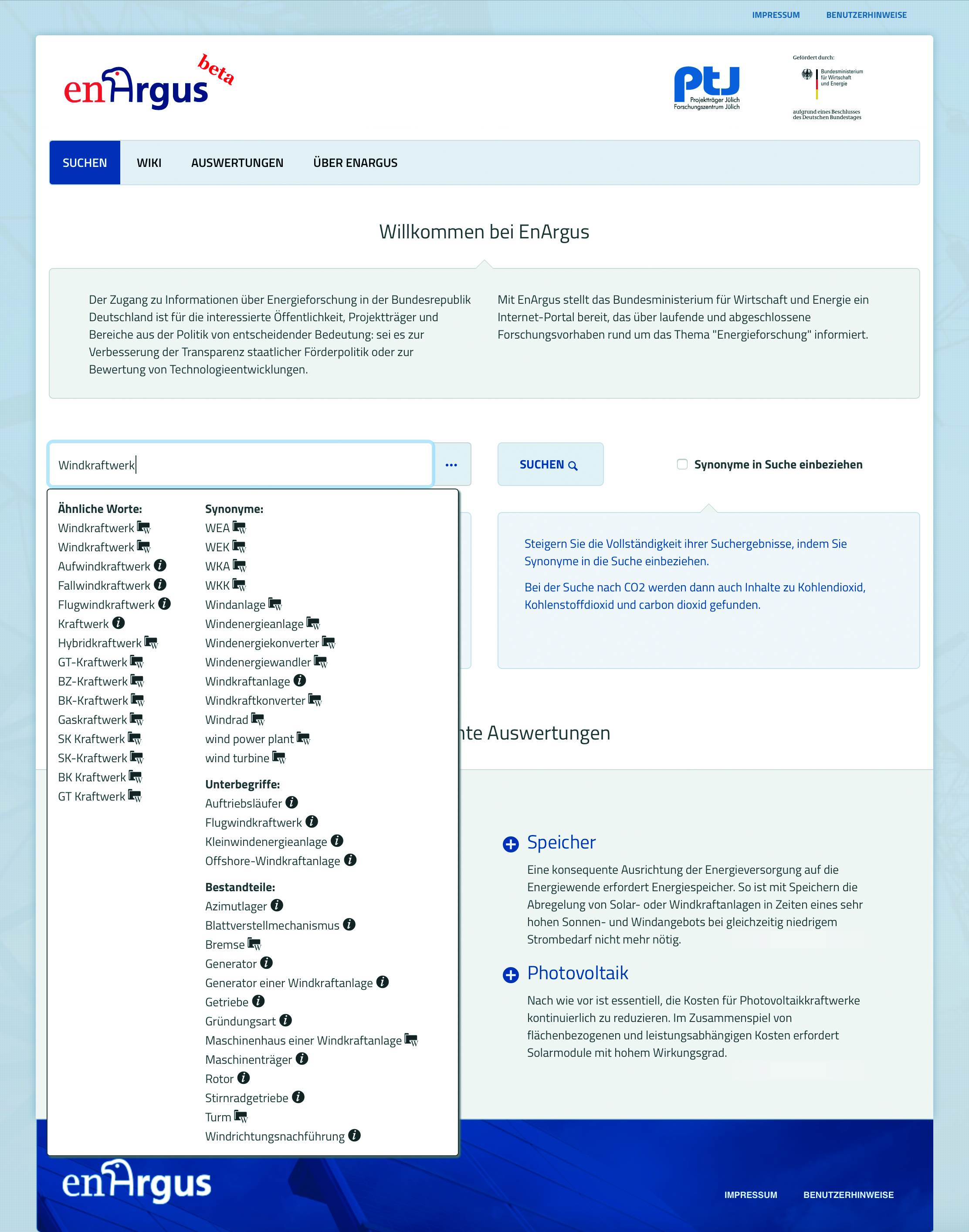In 2016, the German government spent some €867 million on energy research, a new record. A successful energy transition is one of the most important tasks for a sustainable Germany. Yet the funding landscape is becoming increasingly complicated: What is being funded, where, how, and by whom?
A recurring problem in preparing the German federal government's energy report is retrieving complete information from the databases of ongoing and completed projects. To address this challenge, the Federal Ministry of Economics and Energy (BMWi) funded a four-year joint project called »EnArgus« aimed at developing a central information system with semantic search. The goal is to provide users in the sponsoring agencies, as well as policy makers (ministries and members of parliament), and to a lesser extent, the interested public, with uniform central access to information on energy research in the Federal Republic of Germany. A consortium of ten institutions under the leadership of the Fraunhofer Institute for Applied Information Technology FIT was commissioned to carry out the project. The Fraunhofer FKIE's scope of work included the creation of the ontology which serves as the basis for the semantic search.

